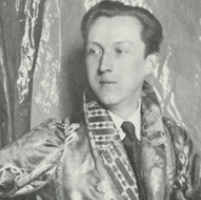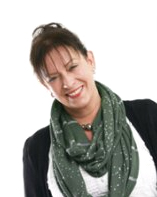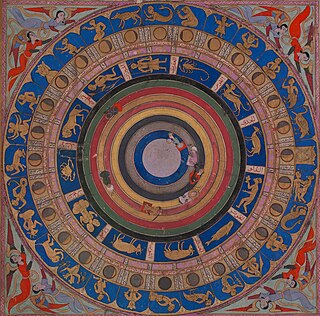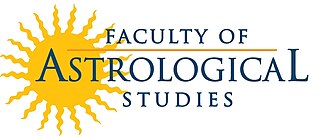Astrology is a range of divinatory practices, recognized as pseudoscientific since the 18th century, that propose that information about human affairs and terrestrial events may be discerned by studying the apparent positions of celestial objects. Different cultures have employed forms of astrology since at least the 2nd millennium BCE, these practices having originated in calendrical systems used to predict seasonal shifts and to interpret celestial cycles as signs of divine communications. Most, if not all, cultures have attached importance to what they observed in the sky, and some—such as the Hindus, Chinese, and the Maya—developed elaborate systems for predicting terrestrial events from celestial observations. Western astrology, one of the oldest astrological systems still in use, can trace its roots to 19th–17th century BCE Mesopotamia, from where it spread to Ancient Greece, Rome, the Islamic world, and eventually Central and Western Europe. Contemporary Western astrology is often associated with systems of horoscopes that purport to explain aspects of a person's personality and predict significant events in their lives based on the positions of celestial objects; the majority of professional astrologers rely on such systems.

The zodiac is a belt-shaped region of the sky that extends approximately 8° north and south of the ecliptic, the apparent path of the Sun across the celestial sphere over the course of the year. Also within this zodiac belt appear the Moon and the brightest planets, along their orbital planes. The zodiac is divided along the ecliptic into 12 equal parts ("signs"), each occupying 30° of celestial longitude. These signs roughly correspond to the astronomical constellations with the following modern names: Aries, Taurus, Gemini, Cancer, Leo, Virgo, Libra, Scorpio, Sagittarius, Capricorn, Aquarius, and Pisces.
Western astrology is the system of astrology most popular in Western countries. Western astrology is historically based on Ptolemy's Tetrabiblos, which in turn was a continuation of Hellenistic and ultimately Babylonian traditions.
Most horoscopic traditions of astrology systems divide the horoscope into a number of houses whose positions depend on time and location rather than on date. In Hindu astrological tradition these are known as Bhāvas. The houses of the horoscope represent different fields of experience wherein the energies of the signs and planets operate—described in terms of physical surroundings as well as personal life experiences.

Erotic literature comprises fictional and factual stories and accounts of eros intended to arouse similar feelings in readers. This contrasts erotica, which focuses more specifically on sexual feelings. Other common elements are satire and social criticism. Much erotic literature features erotic art, illustrating the text.
An astrological age is a time period which, according to astrology, parallels major changes in the development of human society, culture, history, and politics. There are twelve astrological ages corresponding to the twelve zodiacal signs in western astrology. One cycle of the twelve astrological ages is called a Great Year, comprising 25,772 solar years, at the end of which another cycle begins.

Sir Sacheverell Reresby Sitwell, 6th Baronet, was an English writer, particularly on baroque architecture, and an art and music critic. Sitwell produced some 50 volumes of poetry and some 50 works on art, music, architecture, and travel.
Natal astrology, also known as genethliac astrology or genethlialogy, is a system of astrology that claims to shed light on an individual’s personality or path in life based on constructing a horoscope or natal chart that includes the exact date, time, and location of an individual's birth. Natal astrology is found in the Indian, Chinese, Hellenistic and Western astrological traditions.
Martin Roger Seymour-Smith was a British poet, literary critic, and biographer.

Sydney Omarr was an American astrologer and an astrology consultant to the rich and famous. His daily Sun Sign Horoscope column appeared in more than 200 newspapers and his annual forecast books for each sign of the zodiac sold over 50 million copies.
Julia Parker is an astrologer and author who, often in partnership with her husband Derek Parker, has written many popular and introductory books on astrology.

Deborah Houlding is an English author researcher, educator, and publisher who specializes in astrology. She has been referred to as "one of the UK's top astrologers". She wrote The Houses: Temples of the Sky. and created the Skyscript website. Houlding has been awarded by the Astrological Associations of Great Britain, Romania, and others.

Astrological transits are one of the main means used in horoscopic astrology to forecast future trends and developments. As its name implies, astrological transits involve a method of interpreting the ongoing movement of the planets as they transit the horoscope. This is most often done for the birth or Natal Chart of a particular individual. Particular attention is paid to changes of sign, or house, and to the aspects or angles the transiting planets make with the natal chart.

Cora Pearl was an English courtesan or cocotte of the French demimonde who became most well known during the period of the Second French Empire.

Dennis Elwell was a British astrologer, journalist, author and lecturer. He is the author of the book Cosmic Loom, and has contributed articles to the publications The Future of Astrology, the Astrological Association Journal, American Astrology, Prediction and Mountain Astrologer.

Hellenistic astrology is a tradition of horoscopic astrology that was developed and practiced in the late Hellenistic period in and around the Mediterranean Basin region, especially in Egypt. The texts and technical terminology of this tradition of astrology were largely written in Greek. The tradition originated sometime around the late 2nd or early 1st century BC, and then was practiced until the 6th or 7th century AD. This type of astrology is commonly referred to as "Hellenistic astrology" because it was developed in the late Hellenistic period, although it continued to be practiced for several centuries after the end of what historians usually classify as the Hellenistic era.
Lois Rodden was an American astrologer and astrological data collector, known primarily as the founder of Astrodatabank. She was a pioneer in raising awareness of the sourcing of data being foundational in the credibility of astrology.

Some medieval Muslims took a keen interest in the study of astrology, partly because they considered the celestial bodies to be essential, partly because the dwellers of desert-regions often travelled at night, and relied upon knowledge of the constellations for guidance in their journeys.
In astrology, planets have a meaning different from the astronomical understanding of what a planet is. Before the age of telescopes, the night sky was thought to consist of two similar components: fixed stars, which remained motionless in relation to each other, and moving objects/"wandering stars", which moved relative to the fixed stars over the course of the year(s).

The Faculty of Astrological Studies is a UK-based school of astrology which in its over sixty years of existence has enrolled more than 10,000 students from ninety countries.









